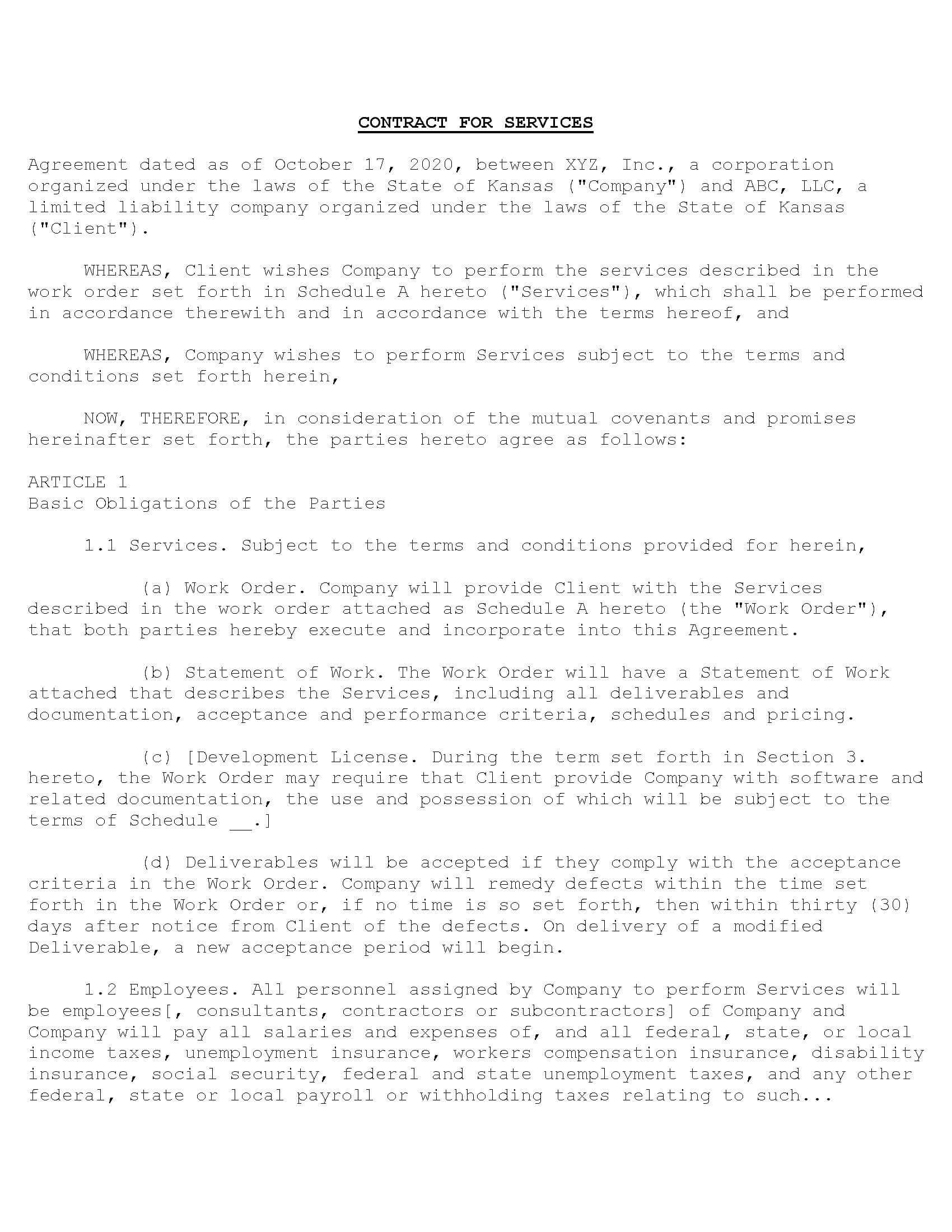
In our last blog post about contract law, we wrote about fundamental contract principles in Kansas, dispelling the myth that a “meeting of the minds” has anything to do with what secret thoughts are taking in a person’s head but, instead, refers to objective or manifested intentions and outward communications or expressions. Now hang tight as we do an about-face: contract terms that are not outwardly communicated or expressed can still make their way into contracts in Kansas. This current post is the latest in our contract law series, showing us that there may be more than meets the eye as it relates to the words on the pages of any given contract.
We start with the comforting proposition that implied covenants are generally not favored by the law. Columbian Nat’l Title Ins. v. Township Title Serv., 659 F. Supp. 796, 806 (D. Kan. 1987) (citing 17A C.J.S. Contracts § 328 at 287). Through the fruits of freedom of contract, many people enjoy and expect the government, and the courts, to stay out of the agreements of private parties and not interfere with their content. The disfavoring of implied covenants in contracts, respecting the autonomy of contracting parties, is consistent with the freedom of contract principle.
The disfavoring of implied covenants and the favoring of freedom of contract has its limits, however. “Kansas law implies a warranty of workmanlike performance in every service contract where there is no express [warranty] term provided.” FDX Supply Chain Servs. v. The North Face, Inc., 98 F. Supp. 2d 1244, 1251 (D. Kan. 2000).
The implications of this rule of law in Kansas are widespread. The quantity of service contracts made in Kansas on a yearly, monthly, or even daily basis is probably too large, and certainly too unwieldy, to count. Given the number of small businesses that operate with very loose written contracts, if any, the implied warranty of workmanlike performance may be omnipresent.
The implied warranty of workmanlike performance is implied by operation of law. Zenda Grain & Supply Co. v. Farmland Indus., 20 Kan. App. 2d 728, 738 (Kan. Ct. App. 1995). It is imposed upon the parties. Id. The imposition of this warranty is far from uncommon. “Kansas decisions have been rather liberal in finding that an implied warranty of workmanlike performance existed in various agreements calling for the performance of work or skill.” Id. at 739.
Handshake or oral agreements are not exempt. The implied warranty of workmanlike performance arises regardless of whether an agreement is entirely oral or entirely in writing or a combination of the two. Id. at 742. A suit for breach of this contractually implied warranty in Kansas must be brought within three (3) years. Id. at 742-44. For some service providers, that may seem like an uncomfortably long period of time to be subject to lawsuits based on an implied term that was not expressly agreed by the parties to the contract, whether oral or in writing or both.
Service providers seeking solace might superficially find it on the basis of the breach of this implied warranty potentially needing to be brought within a lesser period of time, two (2) years, but that statute of limitations pertains to an additional claim, negligence, as opposed to one based in contract. See Gilley v. Farmer, 207 Kan. 536, 542, 485 P.2d 1284, 1289, (Kan. 1971) (“Where negligence on the part of the contractor results in a breach of the implied warranty…the contractee…may proceed against the contractor either in tort or in contract; or he may proceed on both theories.” (citing Nichols v. Nold, 174 Kan. 613, 258 P.2d 317, 38 A.L.R.2d 887)). A breach of the implied warranty of workmanlike performance can subject the service provider to claims under both tort and contract theories of recovery, which traditionally have differing statutes of limitation, with tort claims typically being more stingy than those made under contract.
Service agreements or service contracts are commonplace. What isn’t common is public awareness that Kansas law imposes a warranty of workmanlike performance in every service contract where there is no express warranty term provided, and that service providers can be sued for negligence or breach of contract for failure to meet the implied warranty. Even if there is an absence of an agreement for a warranty of workmanlike performance between contracting parties, the implied warranty still exists, defacing somewhat the principle of freedom of contract.
Here at Kincaid Law KC, LLC ®, we have substantial experience working with service contracts. We frequently review, revise, and draft service contracts for small businesses, landlords, employers, entrepreneurs, and others. We also are able to determine whether a breach of a service contract has occurred and represent a party in the enforcement or defense thereof. Please contact us at 913-735-7707 or conveniently schedule with us here if we might be of assistance to you or your business.
Matthew T. Kincaid
